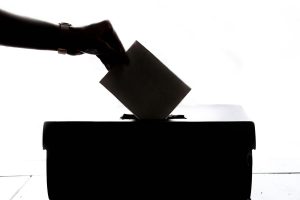An ideology is a set of opinions or beliefs of a group or an individual.
Very often ideology refers to a set of political beliefs or a set of ideas that characterise a particular culture.
Capitalism, Communism, Socialism, and Marxism are some examples of ideologies.
An ideology invites a set of beliefs that affects our outlook on the world. Our ideology is our most closely held set of values and feelings, and it acts as the filter through which we see everything and everybody.
These beliefs are often so close to us that we may not even realise that they are there. We simply think that our beliefs are natural and obviously true.
Religion is one type of ideology, and religious belief affects a person’s views. Political affiliation and belief is another.
The late, former principal of Naparima College, Rev Edward Lute, always used to tell his students of that era that an ideology is an idea with legs.In this great, beautiful, blue, living planet Earth that we belong to, the very one on which we reside; the same one that sustains us; the same one that sustained our forefathers before us; the same one that is expected to sustain our children and also our children’s children; on this same watery planet there are many countries on which live many peoples.
They are with distinct physical features and characteristics and in conjunction with these peoples come many varied and distinct cultures and again, these are accompanied by many diverse practices.
And yet again accompanying these, there is a plethora of lifestyles and dress and beliefs that may be both religious and otherwise.
There are different habits among them, both good and bad and there are as many common qualities among the peoples of the Earth as there are differences among them.
But yet betwixt all of them, there is some form of monetary system; one that is used for the simple purpose of wages and trading and the fuelling of their economic machinery and this is generally what deems or categorises a country as poor or rich.
The difference between poor countries and the rich ones is independent of the age of the country. It does NOT depend, NOR is it based on, NOR does it reside in that country’s available natural resources.
Switzerland, for example, does not plant cocoa but produces the World’s finest chocolates. In its limited terrain and with the parameters of climate and seasonal changes, it still manages to raise animals and plant the soil during the feasible four months of the year.
And yet this is not enough for the Swiss people. For they produce the best dairy products in the world. Also, this relatively small country transmits an image of security orderliness and one of labour consciousness.
It is like a world’s giant strong and secure safety deposit box.
Immigrants in the rich countries who were labelled as lazy and indolent in their former, poorer countries of origin are amazingly the nucleus of the productive power in these larger, richer and greater producing countries.
And so the question is begged. What then is the difference? The difference lies entirely in the attitude of the people; people like you and I and those around us.
The difference is our attitude that has been framed and corralled by education and culture; the framework that builds our attitude. So when we analyse the behaviour of the people of these rich, producing and developed countries, we are only to discover that the greater majority follow some simple, inherent, basic and fundamental principles in their lives.
Our Trinidad and Tobago was once the third richest per capita country in the Western hemisphere.
Maybe we’ve slipped down a few rungs in the last few years. Despite a growing, visible and brazen corruption, we are a sophisticated people, well-educated and our inhabitants, each experience an individual freedom that rarely exists in many other countries.
So, what are the changes we wish for? What are the changes that we crave and clamour for? What are the reasons that we all seem to be so despondent, riled, dissatisfied, dispirited, disconsolate complaining and discouraged? We are always the innocent victims of some distressing complaint. All that we wish for appears to remain out of reach, as food and drink were to Tantalus. Our labours are like that of Sisyphus.
If we do know and can identify them, then all of any change starts with each one of us.
If we love our brother and sister and if we care about our parents and our children and their children; if we have concerns for our friends and if we are concerned about our country and the world and most of all ourselves, then we have this simple charted map to implement this change.
The result is that we have the limitless power to change ourselves and consequently that of our families, our nation and by extension the world.
The cost of change is nil.
![]()












